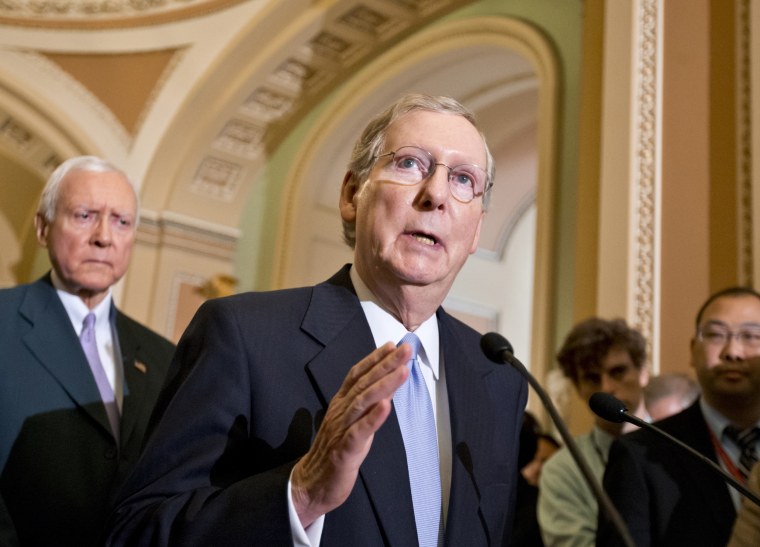WASHINGTON — The U.S. Senate has reached a bipartisan agreement on a new round of sanctions against Russia, a move that will likely force President Donald Trump to either sign or veto a measure that he has not said he supports.
The sanctions are in response to a trio of Russian actions, including their interference in the 2016 election, engagement in Syria and invasion of Crimea.
In a rebuke to the president, negotiators agreed that the additional sanctions on Russia would prohibit the president from being able to lift them without Congressional approval.
In addition, the measure would codify existing sanctions and place new economic restrictions in an effort to economically harm specific individuals and Russia's economy.
Sanctions would be placed on Russians who violate human rights, supply weapons to the Bashar al-Asad regime in Syria or who are involved in the Russian defense and intelligence industry. It also places additional sanctions on specific industries, including the country's mining, shipping and railway industry.
“By codifying existing sanctions and requiring Congressional review of any decision to weaken or lift them, we are ensuring that the United States continues to punish President Putin for his reckless and destabilizing actions," Senate Minority Leader Chuck Schumer wrote in a statement. "These additional sanctions will also send a powerful and bipartisan statement to Russia and any other country who might try to interfere in our elections that they will be punished."
The measure will be attached to a larger bill that would impose new sanctions on Iran, which the president has supported. If the amendment passes a procedural vote Wednesday morning, the Senate could vote it up or down on Thursday. It would then have to be approved by the House before it reaches the president's desk.
Senate majority Leader Mitch McConnell announced last week that he supports adding the Russia sanctions to the measure and relevant senators in leadership and those in charge of the Banking and Foreign Relations Committee began working out an agreement on a measure.
The White House has been silent on the proposal and administration officials have been unclear on what the official position is. Secretary of State Rex Tillerson said in April that the current Russian sanctions would “remain” until the country gives up control of the Crimean peninsula. But the administration has initiated a cozier relationship with Putin, even discussing returning its diplomatic compounds and easing sanctions on Russia's oil industry.
Trump has indicated he is skeptical about additional sanctions and has been dismissive about the role of Russian interference in the U.S. elections. Last Friday, Trump called the investigations into the interference and possible ties to his campaign "an excuse by the Democrats who lost an election that some people think they shouldn’t have lost."
"I think the president has conflated the legitimacy of his election with Russia’s involvement. Nobody’s saying — he won it fairly — that the Russians actually changed the outcome,” said Sen. Lindsey Graham, R-S.C. “[Putin] put the opposition leader in jail today. I think the president will sign the bill. I don’t want to speak for him but I think the case against Russia is overwhelming.”
Some Republicans, including Sen. Bob Corker, R-Tenn., who is also the head of the Foreign Affairs Committee, have been skeptical of moving forward with Russian sanctions. Sen. Jeff Flake, R-Arizona, said last week that the Senate ought to give Trump “more time” before pushing sanctions.
But many Republicans wanted to move ahead. And McConnell’s support advanced the process quickly.
McConnell, who is deeply skeptical and critical of Russia, touted the measure last week before an agreement was reached before the Faith and Freedom Conference in Washington, D.C.
“We’ll soon pass very important new sanctions on both Iran and on Russia,” McConnell said in his list of accomplishments.
Democratic leaders said that they would support an Iranian sanctions bill only if tough sanctions against Russia were also included.
“I think it’s a really good idea to do,” said Sen. Tim Kaine, D-Virginia, and Hillary Clinton’s running mate. “It would be a little odd to take up sanctions that we need to do against a nation that poses us some threat in the region but (not) sanctions on a nation that all of our intel community has decided direct attacked American elections.”

